The LWF Chad program was opened in 2007 in a difficult emergency context. Internally Displaced Persons and refugees, fleeing the crisis in Sudan and the Central African Republic, have put an added pressure on a country at the heart of an unstable region and highly vulnerable to climate events and food insecurity.
To answer refugee and host populations' needs LWF Chad raises awareness, educates on environmental issues, offers alternative energy solutions, improves infrastructures, offers vocational training and develops agricultural programs. LWF Chad, following the guiding principles of the World Service, bases its programmatic approach on ownership and development of projects for, and by, targeted populations.
The humanitarian demand’s evolution, and the changing needs of the refugee populations and host communities, have encouraged LWF Chad to extend its presence and to create new durable strategies. The program, with its 255 staff and 8 offices representing the LWF World Service all over the country, is one of UNHCR’s major partner in Chad and is recognized by the humanitarian community as a reliable and creative humanitarian actor.
- PHASE I Support to Internally Displaced Persons and Sudanese Crisis 2007
The primary mission of the program was to assist Internally Displaced Populations welcomed on Habilé and Haradip sites. LWF Chad helped provide shelters for People with Special Needs, provided psychosocial support, started small Income Generating Activities and Agricultural programs. In addition to this internal crisis, Sudanese Refugees fleeing inter-ethnic conflicts in Darfur also started benefiting from LWF Chad emergency relief efforts. LWF Chad opened its first bureau in Koukou in the Dar Sila region close to the Goz Amir Refugees Camp and helped coordinating activities in the camp.
- PHASE II CAR Crisis and Services to Communities 2008
In 2008, when there was no other humanitarian actor already present in the area, the LWF Chad program collaborated to the opening of Yaroungou and Moula Refugee Camps. LWF Chad is charged to managed various sectors in the camps: Health, Food Distributions, Energy, Agriculture and Psychosocial support. These two camps had to be relocated to Belom due to repeated flooding.
- PHASE III Sudanese Crises 2009
LWF Chad develops specific programs targeting specific socio-economic levels in camps. The program continues its work with People with Special Needs in providing shelters, cultural and leisure activities as well as psychosocial support for women, elderlies, youth programme.
In 2009 LWF Chad intervene in the Ouaddaï region to assist Sudanese Refugees in Farchana and Gaga Refugee Camps developing agricultural programs, supporting livestock owners, providing energy solutions and psychosocial protection.
- PHASE III Help to Returnees 2010
UNHCR asks LWF Chad to create a program targeting and supporting Returnees in Return VIllages in the Dar Sila region. LWF Chad mandate includes Installation Kits distribution, support to the construction of shelters, offering psychosocial support and all activities that contributes to the self reliance of populations. LWF Chad thus developed capacity building programs for communities offering vocational trainings in agriculture, livestock care, masonry, dyeing and sewing. In 2011, thanks to the succes of the capacity building program, UNHCR extends LWF Chad's program to Goz Beida in support to returnees.
- PHASE IV Capacity Building 2011-2013
LWF Chad supports refugees' livelihoods development with the organization of vocational trainings, assistance to the construction of shelters for Persons with Special Needs in Refugee camps as well as in Returnees' villages. In 2012, LWF Chad program extends its interventions to Sudanese Refugees in Hadjar Hadid, in the Ouaddaï region, which still welcomes to this day the two biggest refugee camps in the country with 60 000 refugees. To support these communities LWF Chad deploys there as well capacity building programs and vocational trainings.
- PHASE V Seeds for Solution 2014-2016
The Seeds for Solutions project, developed in partnership with UNHCR, aims at improving self-reliance in refugee and local populations, while contributing to the establishment of peaceful coexistence mechanisms.
LWF Chad supports host communities and refugee populations with capacity building to help them reach self-sufficiency. LWF also promotes peaceful coexistence between communities with the organization of mixt committees and support to agricultural and livestock activities, as well as Income Generating Activities. LWF Chad, in collaboration with local authorities and partner organizations, advocates for the allocation of farmlands to host and refugee producers. Thanks to this work LWF Chad built new agricultural infrastructures and participants to its projects started cultivating the new available lands.

